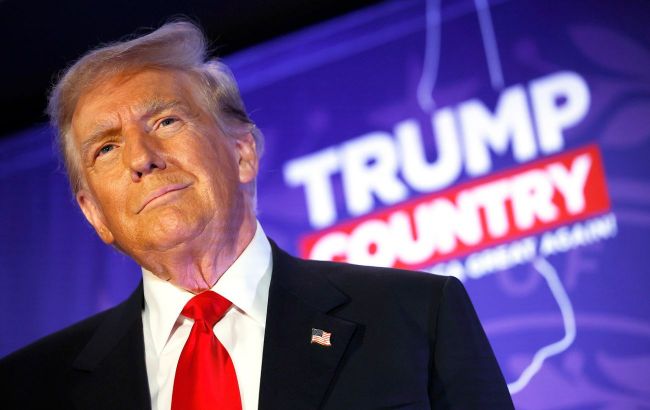European spies hesitate to share secrets with US due to Trump, says Politico
 Photo: US President Donald Trump (Getty Images)
Photo: US President Donald Trump (Getty Images)
Due to US President Donald Trump, European intelligence agencies are reluctant to share information with their American counterparts. This concern is linked to his attitude towards the disclosure of classified data, Politico informs.
As the publication reports, US allies that regularly exchange intelligence with the United States are seeking ways to protect highly classified information from what they expect to be a "leaky Trump administration," although "their options are limited."
Journalists clarify that these countries have long been concerned that Trump's "track record" of disclosing classified information will continue into a second term.
"That alarm has deepened as Congress has signed off on his controversial picks to oversee intelligence operations and amid accusations that sensitive data is already being mishandled," the article states.
However, global intelligence cooperation in gathering and sharing intelligence has deep roots — "wouldn’t be easy to disentangle."
"You can't just flip a switch," said a Northern European military official who, like others, was granted anonymity to discuss delicate intelligence relationships.
The publication cites an instance where Trump tweeted a highly classified image of an Iranian missile launch site and shared extremely sensitive Israeli intelligence with the Russian foreign minister.
A former senior official with British intelligence agency MI6 stated that when it came to particularly secret projects, the agency was cautious about what to disclose during Trump's first term. MI6 declined to comment on this story.
"There always is, mind you, with any administration, we don’t just open up the books. But we were even more cautious the last time with Trump, and I find it hard to believe the service won’t be a little more guarded this time," the former official said.
Concerned foreign partners may hope to engage more with CIA Director John Ratcliffe and less with Director of National Intelligence Tulsi Gabbard.
Ratcliffe served as the Director of National Intelligence during Trump’s first term and was considered "one of the president’s less controversial Cabinet nominees despite past concerns that he politicized intelligence."
"While the role of DNI is largely bureaucratic, she will oversee the 18 agencies that make up the U.S. intelligence community and serve as the president’s primary intelligence adviser," notes Politico.
Importantly, the concerns of intelligence representatives cannot be deemed purely hypothetical. Just one month into his second term, the Trump administration already faced accusations of mishandling classified information.
"The CIA is reported to have sent an unclassified email listing the first names and first initials of surnames of recently hired analysts and operatives, many of whom were hired to focus on China, to the Office of Personnel Management in a bid to comply with the administration’s effort to downsize the federal workforce — potentially exposing them to eavesdropping by foreign adversaries," journalists describe the details of a case that confirms the aforementioned fears.
However, the imbalance of information exchanged between the US and its partners means that "they have more to lose should they cross Trump, given his often transactional approach to foreign affairs."
The United States has historically been the largest provider of intelligence among Five Eyes partners and beyond. American intelligence played a crucial role in warning and mobilizing allies in Europe about Kremlin plans to invade Ukraine months before Russian tanks crossed the country's borders.
"It is not only about sharing but receiving. U.S. eyes and ears are essential for Ukraine," said a German official who wished to remain unnamed, as they were not authorized to speak to the press.
Amid the concerns of some European intelligence representatives, there are those "who are proceeding with business as usual."
"Our policy hasn't changed," said Kaupo Rosin, director of Estonia's foreign intelligence.
However, "others were more uneasy" and stated that "political trust in the US is eroding."
"That cuts across all elements of national security including the IC. But at a day-to-day level with intelligence professionals, I don’t think there is an issue — yet.," said a former British military official.
Situation in US intelligence and military
Recently, the US Senate voted to confirm Tulsi Gabbard as the Director of National Intelligence. Previously, she referred to Ukraine as "the second Afghanistan." Additionally, Gabbard has made statements regarding "biolabs" in Ukraine.
It is noteworthy that in early February, all CIA employees were offered the option to resign with compensation. Approximately 2.4 million people work in the federal government, falling under the so-called "buyout" or deferred retirement program.
Furthermore, Trump and Defense Secretary Pete Hegset dismissed key military commanders. The new chairman of the Joint Chiefs of Staff is John Cain, who is not a four-star general.

